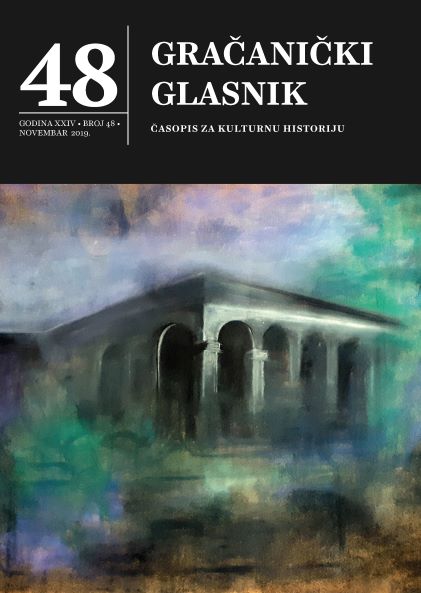Značaj osnivanja i doprinos Narodnog univerziteta općem prosvjećivanju i kulturnom uzdizanju naroda na širem području Gračanice
The importance of the founding and the contribution of the People’s University to the general education and cultural uplifting of the people in the wider Gračanica area
Author(s): Omer HamzićSubject(s): History, Civil Society, Recent History (1900 till today), Vocational Education, Adult Education, Post-War period (1950 - 1989)
Published by: Izdavačka kuća »Monos« d.o.o
Keywords: People's University; ideological-political education; adult education; National Library; cinemas;
Summary/Abstract: The foundation of the People’s University in late 1959 and early 1960 was conducted in a very difficult economic and social situation for the municipality. The support of the local government was decisive for the survival and further development of this institution, which at that time showed a little more willingness than in the previous period when it comes to the advancement of social and cultural life, primarily in Gračanica itself and in the wider municipality. In this sense the efforts of the party to raise the ideological and political education and training of their members and personnel to a higher level are emphasized. This form of adult education initially dominated the functioning of this institution. The documents show that the leadership of the university, primarily Nesib Suman, emphasized such forms out of pragmatic reasoning first, and not for purely political reasons. The institution left these narrow frames very quickly, in the second or third year of its existence, and moved to a broader level of adult education and the general enlightenment of the people. Ideological and political education accounted for only one quarter of the total engagement of this institution in the field of adult education. The activities of the other educational centers were established, which will dominate the activity of the University in the coming period. This is especially relevant when it comes to the vocational education of the broad classes of workers, the huge numbers of unemployed people and the rural population of all categories, from farmers to housewives. Many found jobs after training in these educational institutions; organized the production on their properties better, improved the standard of their households, ect. The lists and data on the coverage of the broad masses by educational forms show a wide range of trained and semi-skilled workers (carpenters, masons, reinforcers, lifters…), followed by students in the departments of instructive classes of the Higher economical and commercial school of Brčko, higher pedagogical schools of Tuzla and Banja Luka, along with the literacy courses and the registered eight year school for adults, ethic classes, cattle breeding seminars, training for wintering and home organization, to “Bagat” courses of tailoring and sewing; therefore it is not hard to give a positive assessments of the results of the People’s University even from today’s standpoint, especially when it comes to the effect it had on the ordinary people, even though such institutions were originally set up to serve the regime that would collapse in the nineties. As the founder, the Municipality of Gračanica provided considerable funds for financing the activities of the University, while the contemporary socio-political organizations actively participated in the creation and development of the activity program on the basis of the real needs of the widest class of people. On the basis of suggestions and opinions from these structures the cinema, library and House of Culture (The Captain Osman Madrasa building) were joined with the University in 1962; the radio station followed soon as well. The fact that these institutions were united had a positive effect on the development of each separate institution, their activities were interconnected and the merging ensured a more rational use of personnel and resources. Some republican forums voiced their opinion that a merge like this would act like a brake to the development of the cultural institution. In the case of Gračanica this was the impetus. Integration gave positive results in smaller cities, where the institutions were underdeveloped, while it would probably not yield such positive results in bigger cities.
Journal: Gračanički glasnik - Časopis za kulturnu historiju
- Issue Year: 2019
- Issue No: 48
- Page Range: 33-53
- Page Count: 21
- Language: Bosnian

